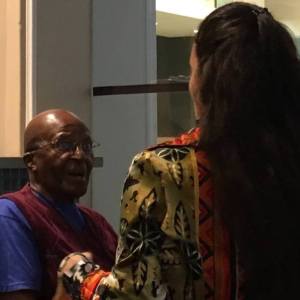
breathe me
compel my flesh to stir.
will new landscapes through
your pores.
dine upon my potent supplication.
peel the lonely longing from
your swelling desire.
partake of flaming majesty, while
speaking: yes, over and over and
over again, rising and falling in
love’s newly remembered caress.
breathe me in.
breathe me out.
© Margot Van Sluytman, somewhere beyond: poems dancing with godde, god, pilgrimage, and pulsating love, Palabras Press, 2006
 In a recent interview, I stated with equanimity that I loved the man, Glen, who murdered my Father, Theodore. Comments to this fact ranged from deep and poignant understanding, to heinous and savage attacks. What struck me was that some of the poignant comments were from non-Christians and some of ugly comments were from Christians. This did not shock me or cause me grief. I felt I was offered an opportunity to explore why it is that we are quick to jump to conclusions, scissoring out taut and staid definitions in the act of trying to make sense of life; and, in so doing, truncating our very own beauty, inadvertently negating the birth of hope.
In a recent interview, I stated with equanimity that I loved the man, Glen, who murdered my Father, Theodore. Comments to this fact ranged from deep and poignant understanding, to heinous and savage attacks. What struck me was that some of the poignant comments were from non-Christians and some of ugly comments were from Christians. This did not shock me or cause me grief. I felt I was offered an opportunity to explore why it is that we are quick to jump to conclusions, scissoring out taut and staid definitions in the act of trying to make sense of life; and, in so doing, truncating our very own beauty, inadvertently negating the birth of hope.
In my poem, “breathe me”, from my book, somewhere beyond: poems dancing with godde, god, pilgrimage, and pulsating love, agape is fleshed out, worded-in.
I had not known it at the time I wrote that poem over twelve years ago, that I was articulating agape. Agape is a Greek word that denotes an all-encompassing love.
For me agape is breath. Is breathing. Is being breathed. Raised Catholic, full-disclosure for this piece permits me to share that I do not have the firm belief in Jesus and Christ and three persons in one God, Father, Son, Holy Spirit, or Mothe r, Son, and Holy Spirit. What I do believe in is breath. And begin breathed by and for love. Love that leans into and surrenders to, Vocatus Atque Non Vocatus, Deus Aderit. Erasmus’ words, Invoked or not God is present. In that presence, is life’s breath inviting each of us to remember our shared-humanity, even as other definitions and descriptors launched at us by those who would have us fit definitions feel unkind.
r, Son, and Holy Spirit. What I do believe in is breath. And begin breathed by and for love. Love that leans into and surrenders to, Vocatus Atque Non Vocatus, Deus Aderit. Erasmus’ words, Invoked or not God is present. In that presence, is life’s breath inviting each of us to remember our shared-humanity, even as other definitions and descriptors launched at us by those who would have us fit definitions feel unkind.
In the cosmological dance wherein we are each connected by Mystery, we in-form, re-form, trans-form, and are trans-formed when we remember that we are of Word made flesh, breathing and breathed daily in the crucible of our shared-humanity, sculpted by our lived-experiences. Our choice to partake of flaming majesty and to speak yes to life is offered to us daily. And in those moments when we can not give of love to ourselves or to others, we are breathed.
Margot Van Sluytman is an award-winning poet, lecturer, Sawbonna/Restorative Justice practitioner, and therapeutic writing mentor. Her talks and workshops are shared around the globe, most recently at Cambridge and Durham Universities, UK. Her published books include: Sawbonna: A Real Life Restorative Justice Story; The Other Inmate: Poetry and Workbook for Restorative Practices; Dance With Your Healing: Tears Let Me Begin to Speak ; and, Somewhere Beyond: Poems Dancing With Godde, God, Pilgrimage, and Pulsating Love. While working on her second Master’s Degree in Theology, her first MA was in Integrated Arts Studies with a focus on Sawbonna/Restorative Justice and Therapeutic Writing, she decided that that school and environment of the that theology school were not in sync with feminism and far too androcentric. She left. Margot, whose Spirit Name is, RavenSpeaks, believes that the personal, the public, and the political are symbiotic siblings. http://sawbonna.wordpress.com/


The city I lived in for 35 years before moving in 2014 had a restorative justice program. I think a lot of people have trouble with the concept – we are taught about “tit for tat” and the British system of crime and punishment.
It seems however, to be a part of the traditional practice of many Indigenous Peoples who have a more developed sense of community. Unfortunately, many “Christians” seem to favour fitting punishment to crime rather than repentance, forgiveness, and restoring someone to the community – which is not the same as “getting away with murder”. One of the requirements of our city program is that the offender owns up to his actions and how they effected others. And of course, the victim has to agree to be part of the process.
Thank you for the work you do Margot, and for your poetry.
LikeLiked by 1 person
People judge and I would wager that those judgements come from folks who have not suffered such a profound loss of the loving father, as a young girl. A father whose life was taken away at too young an age when he had so much to teach and to give and to share with his young family.
My Dad drowned when I was a young woman and I too was devastated by my loss. These deep wounds make us strong, loving and compassionate and empathetic people, or they may devastate us to the point of going through life immobilized and numb.
You, Margot, it is apparent that this profound loss, although it immobilized you for a time, has forged you into a loving, compassionate and empathetic human being. This experience carved you in to who you are today. If you had not gone through this harrowing experience first of all, and secondly had the strength to forgive Glenn, you would be a different person today. You, in your present work, are healing those who can and will be healed. Taking people out of the darkness and despair that tragedy has befallen upon and you are helping them to see that there is a different choice for their lives.
We should not pass judgement. What is that saying, “don’t pretend to know what my life is, unless you have walked a mile in my shoes”.
I respect you and honour your blessed journey. Thank you for having the courage and the strength to show us a healthy way of dealing with our grief. You are making a difference in the world.
LikeLiked by 1 person
Thank you for what you have shared about your Dad, Lynn. The saying you share is, “Don’g pretend to know what my life is, unless you have walked a mile in my shoes,” is my Mom’s favourite.
LikeLike
The us versus them notion of how to live justice offers nothing of our shared-humanity, as you note so richly in what you have shared, Barbara. You bet, Sawbonna-Restorative Justice is not at all about “getting away with murder.” It is about I and Thou. About with-ness-ing.
LikeLike
Delightful, warm, beautiful poem, thanks Margot for sharing it. I got lost today doing some work online, researching your agápē (all-encompassing love, in Greek). And I came across an interesting article listing six Greek terms for love — EROS (sexual passion) — PHILIA (friendship) — LUDUS (playful love among children or young lovers) — AGAPE (love for everyone) — PRAGMA (patience and tolerance for longstanding love) — PHILAUTIA (love of self).
LikeLiked by 1 person
The book, The Four Loves, by C.S. Lewis, is a book I have cherished for a long time, Sarah. I love that you found two more loves. Thank you for your kind words about my poem, breathe me.
LikeLike